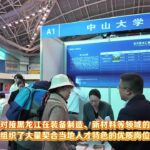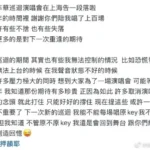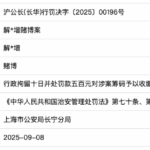On August 30, marking the 100-day countdown to the Special Olympics, the organizing committee held a press conference titled “Striving for 100 Days, the Bay Area Chases Dreams Together” at the International Conference Hall on the third floor of Guangdong Building at 9:30 AM. Representatives from the organizing committee and the provincial executive committee, along with coordinators from the Hong Kong and Macau competition zones, introduced the preparations for each zone and addressed questions of interest. The event also featured a showcase of core visual elements such as uniforms, sports icons, and athletic silhouettes for the Special Olympics.
Special Olympics
The Special Olympics is a global movement and sporting event founded in 1968 by Eunice Kennedy Shriver to provide year-round training and athletic competitions for children and adults with intellectual disabilities. It promotes inclusion, acceptance, and physical fitness, empowering millions of participants worldwide to develop skills and build confidence through sports.
Guangdong Building
The Guangdong Building, also known as the Guangdong Mansion, is a historic landmark in Guangzhou, China. Originally constructed in 1937, it was one of the city’s first modern high-rises and a symbol of its early 20th-century prosperity. Today, it remains a notable example of pre-war architecture and a functioning commercial and office building.
International Conference Hall
The International Conference Hall is a modern venue designed to host large-scale international meetings, summits, and diplomatic events. While not a single historic site, such halls are often built to facilitate global dialogue and cooperation, with many constructed in the latter half of the 20th century as international organizations expanded. They serve as neutral grounds for political negotiations, economic forums, and cultural exchanges between nations.
Hong Kong competition zone
The term “Hong Kong Competition Zone” does not refer to a specific, well-known historical or cultural site. It is likely a modern designation for a commercial or entertainment district, such as the area around the former Kai Tak Cruise Terminal, which now hosts events and competitions. As a contemporary development, its history is tied to Hong Kong’s recent urban planning and economic initiatives rather than to a long-standing cultural heritage.
Macau competition zone
The Macau competition zone refers to the city’s renowned gaming industry, which has been a central part of its economy and culture since gambling was legalized in the 19th century. Following the end of its monopoly system in 2002, it transformed into the world’s largest gambling hub, surpassing even Las Vegas in revenue. This development is deeply tied to Macau’s unique history as a former Portuguese colony and its current status as a Special Administrative Region of China.





